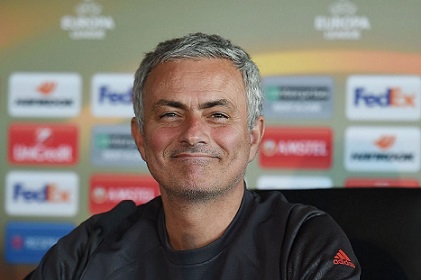 Portugal has produced an astonishing number of football managers for such a small country with a population of a little over 10 million. You’ll find Portuguese coaches on the touchline of England’s Premier League, Brazil’s Serie A, and the Middle East’s lavish projects. This isn’t just a coincidence. It is a reflection of a deeper coaching culture, an excellent educational system and finally, a football identity based on pragmatism, intelligence and adaptability.
Portugal has produced an astonishing number of football managers for such a small country with a population of a little over 10 million. You’ll find Portuguese coaches on the touchline of England’s Premier League, Brazil’s Serie A, and the Middle East’s lavish projects. This isn’t just a coincidence. It is a reflection of a deeper coaching culture, an excellent educational system and finally, a football identity based on pragmatism, intelligence and adaptability.
The Portuguese coaching wave has changed how football is played and developed back home, and not just globally.
The rise of the Portuguese coach
The turning point many identify is José Mourinho. The Portuguese coach’s Champions League wins, along with his charisma and tactics, altered the perception of European clubs concerning Portuguese coaches. Mourinho showed that a coach from Portugal could dominate the biggest stages of the sport. But he was not an isolated phenomenon. Instead, he opened the door, and others walked through.
Several football coaches, including Jorge Jesus, André Villas-Boas, Paulo Fonseca and others have worked across different regions of Europe, Asia, South America and the Middle East. In today’s times, modern coaches like Ruben Amorim and Vítor Pereira are using new techniques for player development.
Nowadays, fans and bettors from all over have begun tracking the Portuguese coaches closely. Through football livescores and match stats, they are not only following the results but also how the managers are imparting their influence on styles and results. You can see the tactical thumbprints: organised backline, fluid midfield rotations, systems that utilise a limited resource to the maximum. Portuguese coaches appeal to clubs with big dreams and small budgets, and to punters who like to use the same set of tactics to keep winning.
Education, not just inspiration
Portugal’s coaching success is built on structure. The respected football coaching pathways in the world that are connected to the Portuguese football federation. The country prioritises.
- Tactical theory
- Psychology and leadership training
- Analysing and using data for matches
- Youth development methodology
- Simulation of an actual match in coaching
Coaches don’t simply study systems. They study how systems adapt. As a result, managers must be flexible and adaptable based on the squad, culture or league. Portuguese coaches are known to fit environments rather than making the environment fit them. In an arena recognised for diversity, with teams that come from all backgrounds, and which demands immediate responses, this kind of flexibility adds great value.
A culture of adaptability
Portuguese coaches have a history of working abroad. The footballing and economic environment of Portugal does not always grant local coaches access to long-term planning and high wages. So going abroad is normal, even encouraged. A lot of coaches have a good command of more than one language, have travelled extensively, and are open to working anywhere.
This adaptability makes them attractive to clubs looking for immediate organisation, strong discipline and good training habits, tactical clarity and competitiveness with limited budgets.
Portuguese coaches substitute managers of a club that are not performing well or in transition. They are problem-solvers.
The global spread and the “Portuguese Network”
Over time, a global professional network formed. Portuguese managers went with a host of staff abroad. This has created a footballing diaspora that stands with one another thus enhancing Portuguese power.
It’s no longer just head coaches. Portuguese performance analysts, technical directors, academy directors, and recruitment staff are now also placed in global key roles. They have extended Portuguese football-related ideas like never before.
What does this mean for Portuguese football at home
The impact back home is a mix of benefits and challenges.
Benefits:
1. Global experience returns home
Rehired coaches bring new tactical trends and professional standards.
2. Reputation boost
Portugal has established itself as a football power in which intelligence, strategy and tactics are the main contributors to the rise in player and coach value.
3. Youth development strengthens
The ability of Portuguese clubs to produce talent has improved with knowledge returning from abroad.
Challenges:
1. Brain drain
Many top managers leave prematurely for bigger wages abroad which dilutes the competition of the domestic league.
2. Short-term coaching cycles
Portugal teams often cannot keep managers long enough to build multi-year plans and projects.
3. Coaches are feeling increased pressure
When success occurs abroad, the expectations at home become higher and less forgiving.
Where it goes next
The rise of Portuguese managers is not slowing down. New trainers are taking to modern analytic and modern training methods every year in Portugal.
The next frontier may be even more important roles: the club CEO, the national federation leadership, and the tactical architecture on the macro level of football strategy.
Portugal is not just exporting coaches. It is exporting football thinking.
In summary
Portuguese managers have taken over world football because the country created:
- Today’s modern and respected coach education system
- A culture of strategic flexibility and global openness
- A professional network exporting football intelligence
Through their success, they’re altering leagues the world over and, in doing so, they are changing what Portuguese football means abroad and at home.

